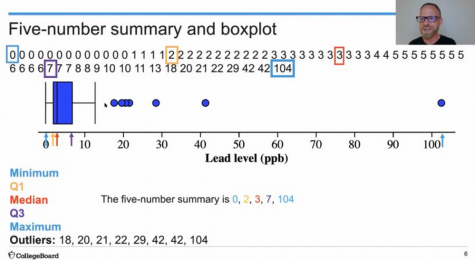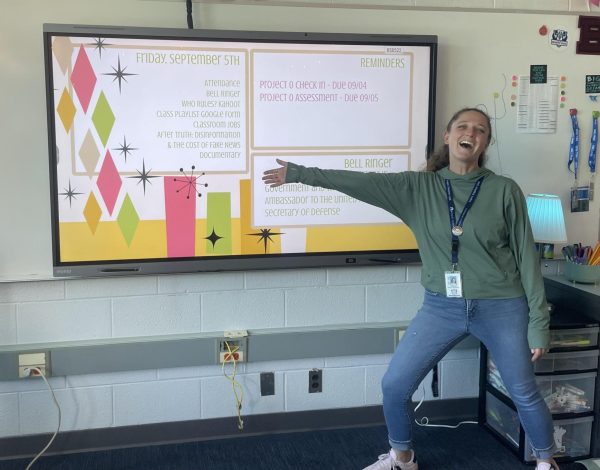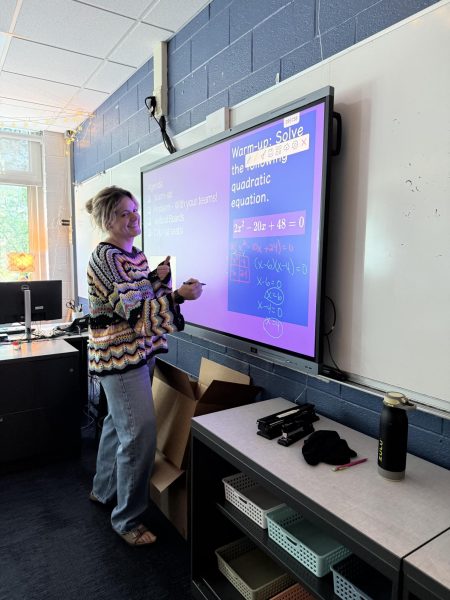College Board Offers Various Options for AP Tests
“Realistically, if I am truly being honest with myself … 80% with fidelity,” was Ms. Hart’s — BHS AP Psychology teacher — response to how much of the class’s content she will be able to get through this year. This is not stemming from poor teaching or an inattentive classroom, but merely a decrease in time for each class. Compared to a normal year of one-hour class periods five days a week, our time in class has dwindled. Additionally, amidst an ongoing global pandemic, stress and anxiety levels deriving from many aspects of life have made school — both for teachers and students — much more difficult.
In the spring of last year, the College Board excluded various units from most AP tests. Online learning posed a major challenge, and the College Board decided to cut students and teachers some slack. However, facing the same decision as the preceding year, they chose to revert back to normal: students will be expected to know 100% of the course’s load. One might ask, “Why was it changed back?” To answer that, an understanding of the exam’s purpose is required.
AP Exams for high school students serve as a way to demonstrate a familiarity and understanding in the course(s) they have been enrolled in for the past school year. After taking the exam, students receive a score anywhere from one to five, and typically, students receive college credit if they get a three or above — depending on the university they are planning to attend. This can be extremely beneficial for BHS students because the price of taking an AP exam is significantly lower than that of a college course.
The issue then is if someone gets college credits, therefore testing out of the introductory course(s) for that subject, they are not fully prepared to go to a higher level. For instance, if a student took the AP Psych exam last spring and got college credit, but had not yet mastered all of the material, they could struggle profoundly in Psych 200 their freshman year. Hence, the College Board is trying to prevent this from happening by making sure that college credits are only awarded to qualified students.
Nevertheless, in the case of Ms. Hart, if students are only being taught 80% of the class’s content, there must be other methods to fully prepare students for the exam. The College Board is making this a priority through various approaches. First, AP Daily Videos have been available for every AP course. These five to ten-minute videos consist of expert teachers thoroughly summarizing concepts on the AP exam. Whenever a student is unsure of a specific topic or has not been taught it in class, he or she can head straight to these videos to obtain a clear sense of the material. I have watched a few of these videos on my own, and I find that they give a fantastic overview of each topic.

Secondly, for the first time, AP exams are offered on different dates. School districts have the option to choose between the normal period of time (early to mid-May), late May, or early June. The main reason they have made this alteration is to provide teachers with more time. This is why CASA elected to have students take their exams during the late May time frame. Also, any test that is taken in June will be online rather than paper/pencil. BHS students who either have accommodations or are not comfortable taking in-person exams are still able to take the test in June.
When taken correctly, AP exams can be remarkably beneficial, as they give students college credits while testing their mastery of the course material. Although we continue to live in abnormal times — making academic aspirations difficult to achieve — the College Board is making many modifications so that students have a regular AP testing experience.

Hi everybody, my name is Matthew Doctoroff and this is my fourth year on the journalism staff. Year after year, the community that is created through the...







